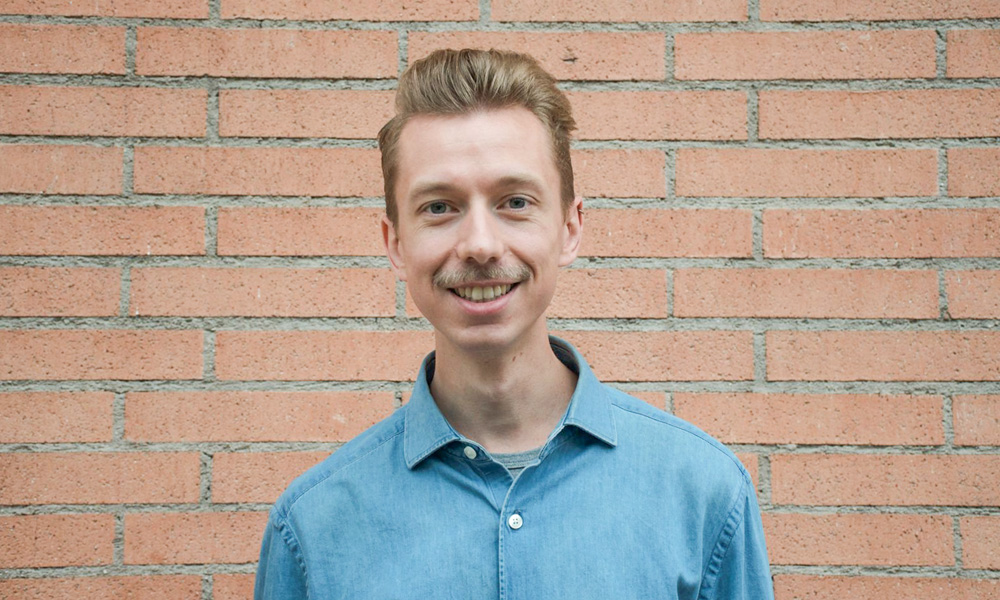Does your blood pressure rise when you make a doctor appointment? Then you’ve been sludged.
Sludge does more than gum up engines. It gums up the healthcare system too – and can cause bigger problems than a misfiring motor.
“Sludge is a policy or practice that makes it unnecessarily difficult to access public services,” said Nathan Hodson, a PhD student in Public Policy and Management at the USC Sol Price School of Public Policy and lead author of a study about sludge that was published this week in British Journal of General Practice. “In our paper, we looked specifically at how sludge affects healthcare delivery in Great Britain.”
Sludge not only wastes patients’ time, it causes stress and dissuades them from accessing the services they need – especially among people from disadvantaged communities.
“Sludge can delay you from having the care you need, and things get worse, or you don’t go to an appointment that you would have gone to if it had been simpler. So you don’t get a diagnosis you need,” said Hodson.
Hodson knew what healthcare sludge was before he knew it had a name. He waded through it when he was a clinical psychiatrist in Great Britain.
“I noticed all the sludge around me getting in the way of patient care,” he said.
An education with outcomes
Eager to learn more about behavioral science, he crossed The Pond to earn a Master of Public Health at Harvard University. There, he studied with Professor Cass Sunstein, who invented the concept of sludge as well as behavioral nudges, which involve motivating people to overcome barriers to desired behaviors.
After returning to the U.K. to practice psychiatry for another three years, Hodson decided to earn his PhD at the USC Price School so he could focus on healthcare sludge.
“I suppose you could call me a U.K. doctor at USC applying cutting-edge U.S. theory to the U.K. health system, though our findings are applicable to any health system that is clogged with sludge,” Hodson said.
Hodson’s and his coauthors’ paper recommend cleaning up sludge by conducting sludge audits, including by giving frontline staff the power to conduct them. The process involves identifying the barriers that patients face then providing alternatives that make it easier to access care.

Master of Health Administration
Shape Systems for Healthier Communities
USC’s MHA offers unparalleled academic and professional training for careers in health administration and policy.
Find Out MoreThe study notes, for example, that a “sludge audit in colorectal cancer screening found through interviews with patients and providers that long wait times and requirements to complete multiple clinic visits contributed to missed screenings and frustrations.”
Overcoming sludge can include demanding less of patients’ time and removing unnecessary paperwork. Walk-in chest x-ray clinics, for example, have reduced sludge by allowing patients to book their own appointments instead of relying on the offices of their primary-care physicians.
Critics say removing sludge from healthcare systems won’t address the big structural changes that are needed to make the systems more efficient. But the paper notes that physicians and their staff don’t typically have the power to make sweeping changes, whereas they can improve the patient experience by removing sludge.
And sludge audits just might make a difference on a larger scale after all.
“Sludge audits identify barriers, inconveniences, and confusion, all of which are closely related to wider systemic issues,” according to the paper.
Student author
It’s not unusual for a PhD student to coauthor academic studies. But it is far less common for a first-year PhD student to publish one, let alone as the lead author. Even more unusual: Hodson had already published about 30 peer-reviewed papers before this one.
“Most PhD students use their first year to figure out what research they want to conduct and how to go about doing it. But Nathan already knew he wanted to focus on getting rid of sludge in healthcare systems. His work will do a lot of good by improving access to healthcare,” said Wändi Bruine de Bruin, Hodson’s PhD advisor and Provost Professor of Public Policy, Psychology, and Behavioral Science at the USC Price School and the USC Dornsife’s Department of Psychology.
“I noticed all the sludge around me getting in the way of patient care.”
Nathan Hodson
Hodson was drawn to the USC Price School in part because he had worked with Bruine de Bruin on behalf of Save the Children, a leading humanitarian organization for children, to identify sludge in education in low- and middle-income countries. Another selling point was the scholarship and mentorship of Professor Jason Doctor, who directs the Behavioral Sciences program with Bruine de Bruin, and the quantity and quality of fellows at the USC Schaeffer Center for Health Policy and Economics. The Schaeffer Center is a collaboration between the USC Price School and the USC Alfred E. Mann School of Pharmacy and Pharmaceutical Sciences.
Hodson has seen first-hand the benefits of desludging the healthcare system. What neither he nor anyone else can determine is the degree to which sludge undermines health.
“You can’t measure the effects of sludge,” he said. “There’s no way of knowing just how many people have been sludged out of the healthcare system.”
So, the best remedy may well be to remove it.
About the study
Additional researchers hailed from University of Lancaster and Cedars-Sinai Medical Center.
Bruine de Bruin received funding from the USC Schaeffer Center to conduct the study.





